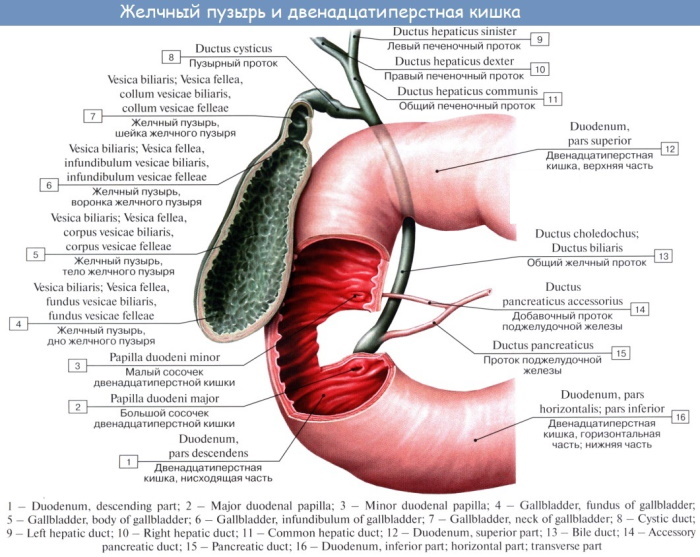Content
- Description
- Potential harm
- Contraindications
- For adults
- For children
- For pregnant or breastfeeding women
- What can you make homemade sleeping pills
- Biologically active additives
- Medicinal plants and their extracts
- Homemade sleeping pills recipes
- Homemade herbal capsules
- Herbal Sleeping Tea
- Video about preparing sleeping pills
About a third of adults sleep less than 7 hours. per day, and many of them use various means to fall asleep quickly and sleep longer. In recent years, more and more people are paying attention to natural sleeping pills, especially those that you can do yourself at home. However, many of these products have not been properly tested and studied, so it is important to find out if they are safe.
In general, in most cases there is a lack of qualitative research on the efficacy and safety of homemade sleeping pills. As a result, they are of no practical benefit to people with severe sleep disorders.
Description
There is no official definition of natural sleep aids.
Without any labeling guidelines or rules, this term is best understood by breaking it down into two parts:
- Natural: there are no rules or regulations governing the use of this definition. In some cases, "natural" refers to a preparation obtained from plants. In other examples, the term is used to describe substances created synthetically in the laboratory, but at the same time naturally produced by the body (such as melatonin), or found in foods (such as tryptophan) or in plants.
- Hypnotic: these products are designed to relieve sleep problems that can range from insomnia before disturbances in sleep time and duration due to jet lag and / or circadian rhythm person.
There is not enough research done on most natural sleeping pills to know if and how they affect sleep in most people.
Potential harm
You can make sleeping pills at home according to many recipes. but it should be borne in mind that they can cause side effects, including serious ones. The fact that these products are labeled as natural does not mean that they cannot be harmful.
For many homemade sleep aids, the lack of research means that even experts do not fully understand the risks involved and cannot determine the best or safest dosage.
As with all medications or dietary supplements, side effects and potential harms depend on the specific compound used.
However, some of the negative effects that can occur when using homemade sleeping pills include:
-
Allergic reaction: allergies to substances in homemade sleep products can be as likely to occur as to pollen or certain foods.

- Adverse reactions: some homemade sleeping pills can cause gastrointestinal problems and headaches. Some substances can affect the body more seriously, up to significant liver damage.
- Excessive sleepiness: natural compounds that induce the desire to fall asleep, especially when used in high doses, can have a long an effect that continues throughout the day, causing feelings of lethargy, fatigue, or inability concentrate.
- Interaction with medications: Natural foods can change the way other drugs are metabolized or absorbed in the body, making them more or less effective. These potentially harmful interactions can be associated with both prescription and over-the-counter drugs.
- Incorrect dosage: limited research on homemade sleeping pills has made it difficult to determine the correct dosage and timing of their intake. Even when taking natural substances, too high a dose can cause unwanted side effects.
Contraindications
Making sleeping pills at home is most often easy, but before taking it, it is important to make sure it is safe and free of contraindications. Most of these drugs, when used in the correct dosage, do not have significant side effects. But this does not mean that they can be accepted by everyone, without exception.
For adults
It is recommended that you check with your doctor or pharmacist before taking a homemade sleep remedy. You should also immediately stop taking such sleeping pills if there are any negative changes in well-being or unwanted side effects.
An absolute contraindication to admission is an individual intolerance or allergy to any component in the composition of the product.
To make sure that there are no other restrictions, you need to clarify some facts, preferably in consultation with your doctor:
- Pay attention to all regularly taken medications and find out their compatibility and interaction with the selected home sleeping pills.
- Assess the likelihood of adverse reactions from taking a home remedy for improving sleep, based on your state of health and existing and past diseases.
- Get a full assessment of your sleep problems to find out the cause and consider a more specific form of treatment.
- Explore in detail the potential benefits and risks of homemade sleeping pills.
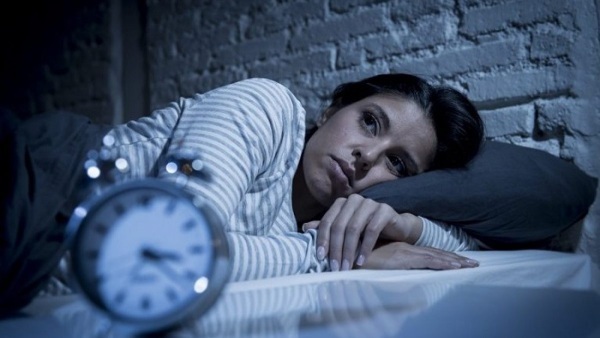
- Get medical advice on dosage or duration of home sleeping pills.
For children
Some homemade sleeping pills are not contraindicated in children, but in many cases they are not well understood to be safe or effective.
Short-term use of some home sleep aids is usually permitted, but data on long-term use are conflicting. Therefore, it is not recommended to give children home sleeping pills for a long time.
To make sure that a particular sleep aid does not negatively affect the health and development of the child, you should be careful when choosing them and take certain measures:
- Initially consult with your local or treating pediatrician.
- Make sure the dosage of home sleeping pills is for children and not adults.
- Pay attention to the list of ingredients used (for possible allergens or substances that cause unpleasant side effects in the child).
- To prepare homemade sleeping pills, purchase only high-quality ingredients with an unexpired shelf life.
For pregnant or breastfeeding women
Pregnant and lactating women should be careful when using home sleep aids. Many of the ingredients used to make these products have not been thoroughly tested for safety, so there is no data on their potential effects on their child.
To make sure that there are no contraindications for taking certain sleeping pills, pregnant or lactating women are advised to first consult with a doctor, discussing each substance in the composition funds.
What can you make homemade sleeping pills
You can make sleeping pills at home from various components - dietary supplements, plant extracts, or natural dried plants and their parts. However, finding the safest and safest ingredients can be challenging given the huge range of manufacturers and products.
However, most dietary supplements and herbal preparations have not been rigorously tested in humans. All information about them (including the effectiveness and characteristics of the effect on the body) is either theoretical, or derived from very small, poorly planned or conducted research on animals.
Biologically active additives
Dietary supplements consist of substances obtained from plants or any food products. Some of them can also be synthesized artificially, and are an absolute analogue of natural compounds (including hormones produced by the human body).
The most common sleep-promoting dietary supplements are composed of the following substances.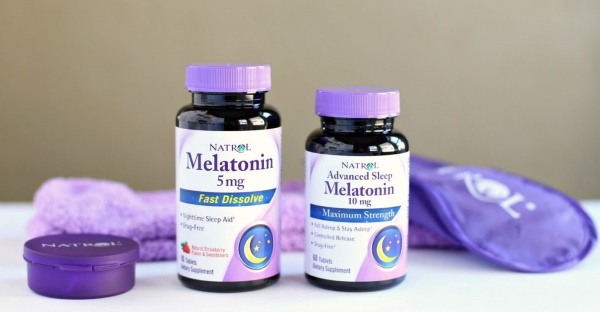
| Substance | What is | Performance data | Side effects | Contraindications |
| Melatonin | A hormone that is produced by the body in the dark. In nature, it is found in small quantities in cherries, and is also synthetically produced in large quantities. | Helps regulate sleep and maintain a healthy circadian rhythm. Taking a dietary supplement with melatonin helps to improve sleep when changing time zones and violations of the circadian rhythm. Several studies show that melatonin is beneficial for improving sleep in general. When taken in the evening, it can help adults fall asleep easier and / or sleep until morning. |
Usually they do not appear. Daytime sleepiness, headaches and dizziness are occasionally noted. Some researchers have suggested that long-term use of melatonin in children may affect the onset of puberty, but there is no conclusive evidence for this. | Not recommended for older people with dementia |
| GABA (gamma-aminobutyric acid) | A compound that functions as a neurotransmitter in the brain. For use as a dietary supplement can be extracted from some plant species. |
Several experiments have confirmed the link between taking GABA and improving sleep. | Sometimes there are headaches and pain in the abdomen. | Individual intolerance. |
| L-theanine | An amino acid produced by the body. It is found naturally in green tea. |
Several studies have highlighted the potential benefits of L-theanine in promoting sleep. | The substance is not well understood, new research is required. | Individual intolerance |
| Glycine | An amino acid produced by the body. For dietary supplements and medicines, it is produced synthetically. | Promotes better sleep, especially with increased body temperature, activates the production of GABA. |
No confirmed side effects have been found. | Not available |
| Magnesium | An essential mineral involved in many processes in the body. Found in many foods. For reception it is produced synthetically. | Its role as a sleep aid is not well defined, but some studies have shown that it is able to help the elderly with insomnia (both by itself and in combination with melatonin and zinc). | Increased doses of magnesium in dietary supplements can cause abdominal pain and diarrhea. At extremely high dosages, magnesium toxicity can cause more serious side effects. | Magnesium interacts with a variety of medications, including some proton pump inhibitors and antibiotics, so it should not be taken with them. |
| Tryptophan | An amino acid produced by the body and used to make melatonin. Found in many foods. | There is little evidence that tryptophan supplementation improves sleep. More research is needed. It has been noted that the effects of tryptophan can vary, depending on other nutrients entering the body at the same time (including different types of carbohydrates). | Not marked. | Not available. |
Medicinal plants and their extracts
Many people prefer to make sleeping pills at home from medicinal plants or their natural extracts. Most of them have been studied scientifically and medically, and the effectiveness of individual herbs has been known for centuries.
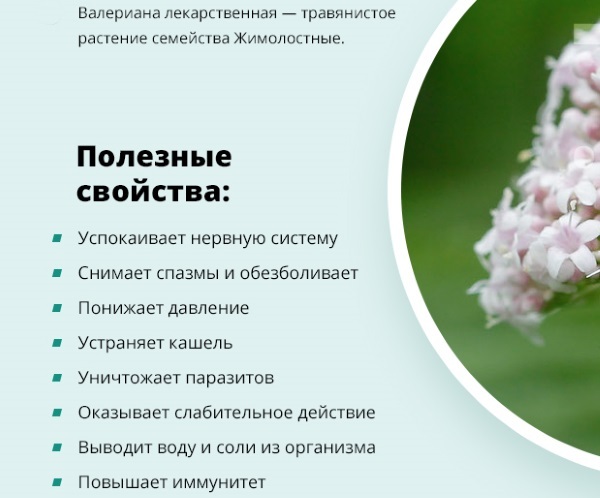
| Plant | What is | Performance data | Side effects | Contraindications |
| Valerian | A herbaceous plant known since Antiquity. For medicinal purposes, roots and leaves are used. | There is conflicting evidence on the effects of valerian on sleep management. Most often, taking drugs based on it helped to fall asleep faster, but in some cases the effect was the opposite (irritability and insomnia). | Usually absent. Occasionally, headaches, slow thinking, stomach problems, cardiovascular dysfunction, and feelings of anxiety are noted. | Individual intolerance |
| Kava | A plant that originates from the Pacific Islands. | Studies have shown that kava can reduce anxiety, which may help resolve sleep problems, but no direct link has been found to improve sleep. | Stomach problems, headaches and dizziness may appear. There have been isolated cases of serious life-threatening liver damage. Prolonged use may cause yellowing, dryness and flaking of the skin. | Individual intolerance, liver failure |
| Passionflower | A climbing plant commonly grown in Europe and America as ornamental vines. | Research on passionflower has shown some promise in the fight against insomnia, but there is no convincing evidence of its effectiveness. | Drowsiness, confusion, or impaired motor coordination are rare. | Taking passionflower can cause uterine contractions, so the plant is not recommended for pregnant women. |
| chamomile | A flowering plant that is widely used as a tea and a natural medicine for many diseases. | There is no reliable evidence that taking chamomile improves sleep. | Usually absent. Quite rarely, they manifest themselves in the form of nausea and dizziness. | Individual intolerance and allergies. |
| Ginkgo biloba | A tree whose leaves are used for medicinal purposes | Taking ginkgo biloba has not been shown to be beneficial in promoting sleep. Some evidence suggests that the drug may reduce anxiety, which often causes trouble falling asleep. | Usually absent. Some people experience stomach problems, dizziness, and heart palpitations. | Ginkgo can interact with other medications, and there are concerns about its safety in pregnant women. |
| Magnolia | A shrub plant whose bark has been used in ancient oriental medicine. | Basic molecular research shows it can help relieve anxiety and improve sleep. However, additional detailed study is needed. | Not marked. | Individual intolerance |
| Lavender | A flowering plant used primarily as an aromatherapy. | Several studies have shown that the scent of lavender essential oils can have a calming effect, improving sleep and sleep quality. | Usually absent. Headache is occasionally noted. | Individual intolerance and allergies. |
Other plant species and their essential oils are also heavily used in aromatherapy (such as rose, jasmine, and chamomile) to promote sleep, but their effectiveness has not been proven, unlike lavender.
Homemade sleeping pills recipes
At home, the easiest way to make a sleeping pill is from medicinal plants that have a sedative effect. These herbs support the health of the nervous system by relieving stress and anxiety and alleviating sleep problems associated with them.
The combination of plants with the specified properties allows you to achieve the following effects:
- helps to fall asleep faster;
- improves overall sleep quality;
- effectively combats sleep problems by being a safer and more affordable alternative to powerful prescription drugs;
- relieves stress, reduces anxiety and anxiety, soothes and removes toxins that can disrupt the body's natural sleep cycle;
- helps a person feel refreshed and energized upon waking up, not tired and overwhelmed.
Homemade herbal capsules
This recipe suggests making homemade sleeping pills in gelatin capsules to facilitate long-term use. Therefore, it is advisable that a capsule machine is available - this will facilitate the cooking process.
As active ingredients, it is necessary to use natural dried herbs, preferably grown in an ecologically clean area or in the wild.
All you need is the following:
- large gelatin capsules;
- 2 parts minced valerian root
- 2 parts of Scutellaria vulgaris, crushed into powder;
- 1 part lemon balm, chopped;
- 1 part oat stalks, minced
- 1 part passionflower, powdered;
- 1/2 part rhodiola root, minced;
- 1/4 of the hop flowers, minced.
Cooking is carried out as follows:
- In a non-reactive bowl, mix all the crushed dry herbs until smooth.
- With the help of a capsule machine, a large number of capsules should be filled with the resulting mixture (it is advisable to calculate that they will be enough for taking within 6-12 months).
- In the absence of a capsule machine, you will need to manually fill the halves of each capsule with the herbal mixture, press tightly, fasten and close them along the marked lines.
- The finished product must be folded into a small glass jar, screw the lid tightly.
Homemade sleeping pills capsules should be stored in a cool, dark and dry place. It will be usable within 6-12 months. You need to take 2-4 capsules in 30 minutes. before sleep.
Herbal Sleeping Tea
Throughout human history, many all-natural herbal remedies have been created by different cultures to help promote sleep. A common cure for insomnia has always been blended herbal tea, which has a calming effect.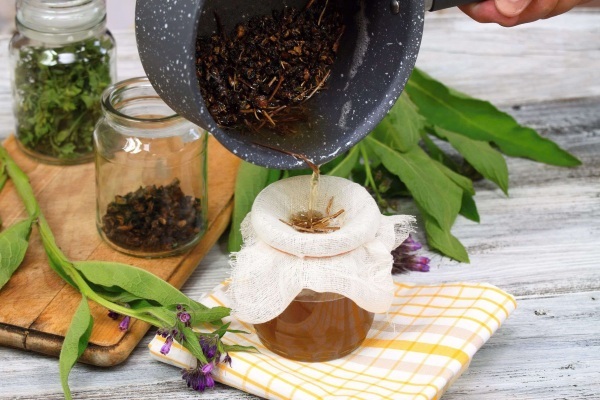
One of the options for such a medicinal drink, which has a strong effect and helps to quickly and soundly fall asleep, consists of the following ingredients:
- 3 parts chamomile flowers;
- 2 parts lemon balm;
- 1 part catnip
- 1 part oat stalks;
- 1 part passionflower;
- 1/4 part of hop flowers;
- 1/4 part valerian root.
To prepare medicinal tea, measure out the portions of each of the listed herbs and stir in a large bowl until smooth. It must be stored in glass jars with tight-fitting lids in a cool, dark place. Herbal tea will retain its medicinal properties for about six months.
To make a drink with a sleeping pill, you need to put a suitable amount of the herbal mixture in a teapot, pour boiling water over it and wait until it is brewed, then pour it into cups. It should be consumed within 30 minutes. before sleep.
Along with taking any home-made sleeping pills, it is recommended to review and improve your sleep hygiene. This means that it takes
take a close look at your bedtime habits and bedroom environment to make sure they are problem-solving. This extra step can make your sleep schedule more consistent and remove obstacles to your sleep. restorative rest and make the most of the improvements that come from homemade sleeping pills.
Video about preparing sleeping pills
10 homemade sleeping pills recipes:

